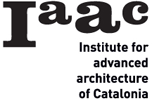PING is a low-tech augmented reality videogame that overlays a moving pixel to a videosignal. The pixel bounces off from objects that are darker than a specific threshold value. More about this projects at http://www.niklasroy.com/project/101/PING
computer vision. ping
computer vision. the cage
“La Gabbia” (The Cage) by auroraMeccanica (2011) is an installation that uses projection to invite the public to interact with physical bird cage to trigger the release of projected birds. At the center of a darkened room, a birdcage hanging from the ceiling it’s lit only by the white beam of the projector and its on the wall. Uncover the bird’s presence through playing a game, a very simple game in which we just have to push the cage and shake it.
I found this beautiful project here
La Gabbia – auroraMeccanica – videoinstallazione interattiva from auroraMeccanica on Vimeo.
My favorite computer vision project
My all-time favorite computer vision project is Text Rain by Camille Utterback & Romy Achituv. Hard to believe that this was done in 1999, long before the Kinect made this much easier.
It was created at ITP, and when I had the chance to spend some time there I did small hommage to this installation. This version uses a Kinect and Box2D. Creative Applications has a nice tutorial on how to do this in Processing.
Face recognition
The Viola-Jones algorithm is one of most common computer vision techniques to detect faces. Greg Borenstein did a nice interview with Adam Harvey where they talk about the underlying assumptions in the technique. Everything is explained clearly, so it’s great if you want to learn a little more about what happens behind the scenes.
Harvey did some interesting work on how we can circumvent face detection using makeup and hairstyles.









